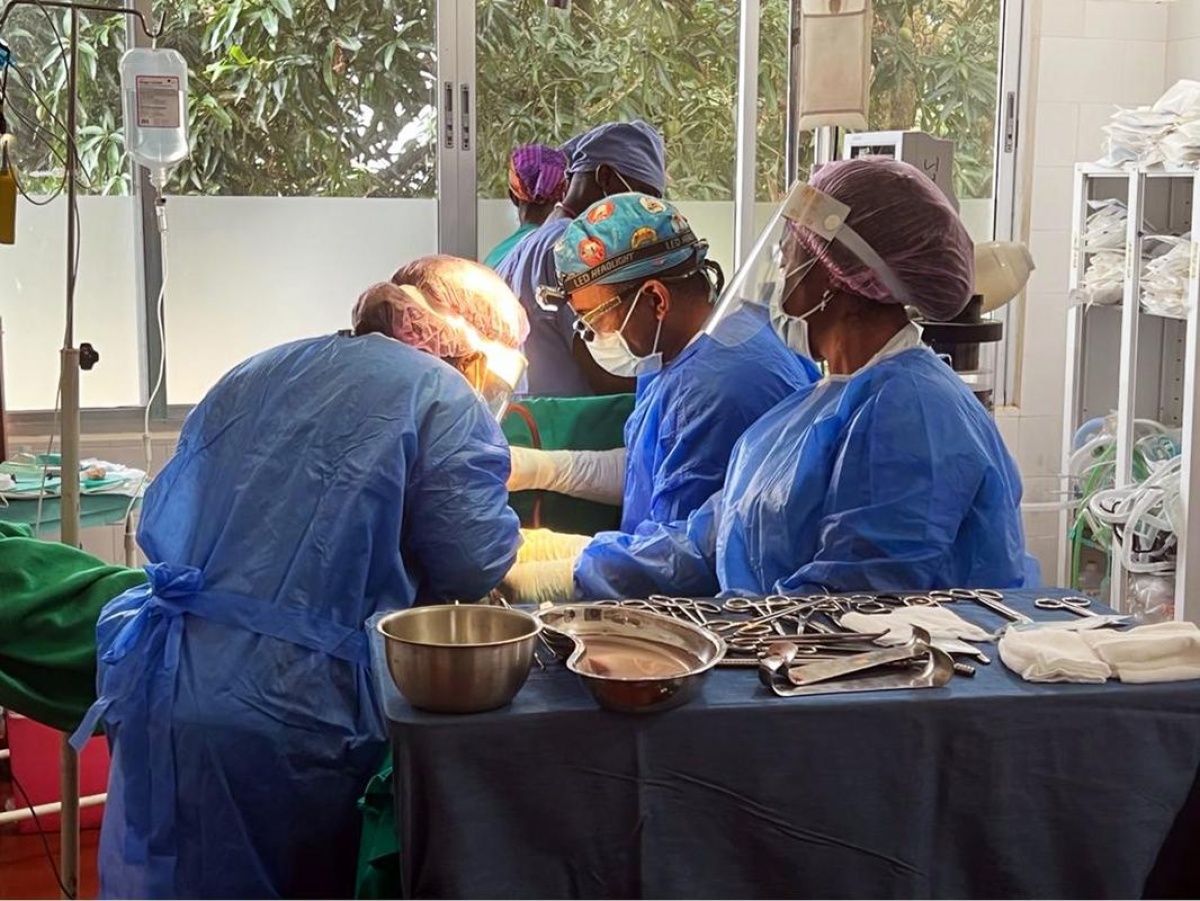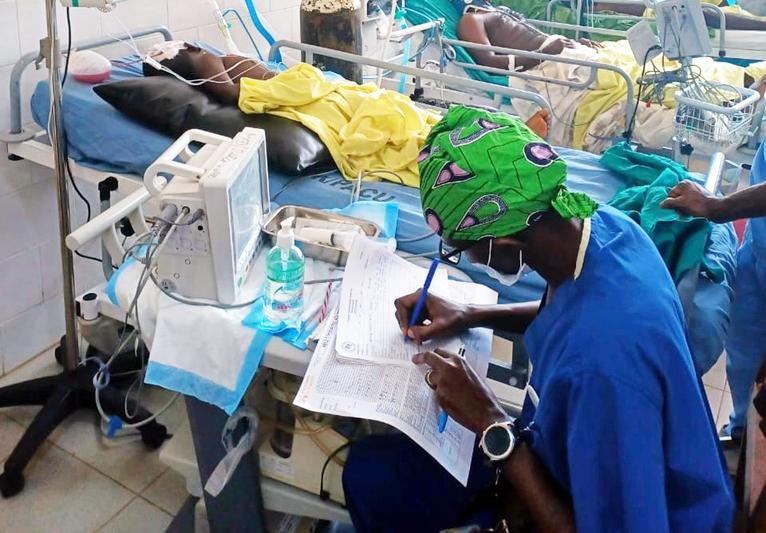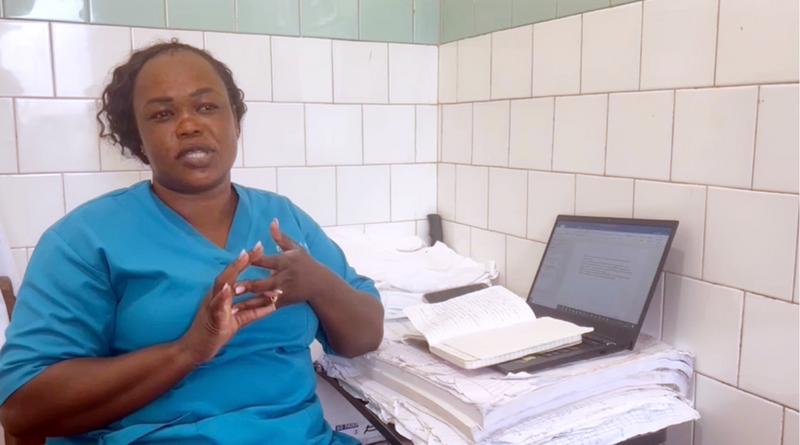Surgery in Primary Care Saves Lives in Rural Liberia
Since 2018, staff have performed more than 2,000 emergency and elective surgeries
Posted on Dec 13, 2022

When a 26-year-old man arrived at the hospital dripping in blood and holding nearly all of his intestines, Dr. Sterman Toussaint was optimistic.
“I told him to calm down and that everything would be okay,” says Toussaint, a surgeon and the director of clinical services at Partners In Health (PIH) Liberia.
The man suffered a stab wound. He was anxious and fearful of death because he couldn’t afford care. Unbeknownst to him, he didn’t need to be concerned: surgery is free for patients at PIH-supported J.J. Dossen Memorial Hospital.
His procedure went well and six days later he was sent home.
“In this case, how could surgery be a luxury? He didn’t stab himself. He had the right to live and that’s what he’s continuing to do,” says Toussaint.

Essential Care
Surgery is a necessity, not a luxury. It’s an investment, not a cost. Yet it often gets overlooked in low- and middle-income countries. Surgery is the “neglected stepchild of global public health,” PIH co-founders Drs. Paul Farmer and Jim Yong Kim wrote in a published paper more than a decade ago. At the time, basic surgical care wasn’t available in southeast Liberia.
If a person suffered an accidental injury, such as a stab wound or broken bone, or a mother needed a C-section, they had to travel hundreds of miles to the nearest clinic with a surgeon. People would often die during the costly journey that took several days due to poor roads. Staff at PIH Liberia vividly remember those days.
Specifically, they recall a motorbike rider who arrived at the hospital with a protruding bone and obvious signs of infection. Without a surgical team in place there was not much the staff could do for him, so they referred him to a clinic about ten hours away. The van got stuck and the patient died before reaching the hospital.
“Today, the story is different,” says Dr. Gerard Ekwen, a general surgeon who has worked at PIH Liberia since 2018.
Since then, Ekwen and his colleagues have completed more than 2,000 lifesaving surgeries at J.J. Dossen Memorial Hospital. Without those services, many people would likely have died from preventable health issues.
Steady Progress
Surgical cases have been on the rise since 2018 when Ekwen, nurse anesthetists, and an obstetrician were hired. Between July 2021 and June 2022, the comprehensive team completed 608 general surgeries, 290 C-sections, and 28 gynecological surgeries.
The quality of care is improving too.

discusses the important of surgery in primary care. Photo by Wellington Dennis / PIH
There has been a steady increase in the use of general anesthesia in major surgical cases and a decrease in less safe methods such as the use of laryngeal masks and endotracheal intubation, both of which are inserted down a patient’s windpipe. This is because of well-trained staff—one of the five key elements of strong health systems. Highly skilled nurse anesthetists at PIH-supported facilities have the necessary skills to intubate and administer general anesthesia drugs and safely manage patients during surgery.
“Surgery is an integral, non-negotiable component of primary care in the developing world,” says Dr. Maxo Luma, executive director of PIH Liberia. “When surgery is well integrated into primary care, we save lives.”
As the team continues to grow, they’re simultaneously training the next generation of health care providers who specialize in surgery. Every year, residents and interns from Monrovia, the country’s capital, shadow surgeons at J.J. Dossen Memorial Hospital. They learn basic surgical skills and how to diagnose and treat patients with a range of conditions. Such training is a priority for PIH Liberia and PIH at large to build resilient and sustainable health systems.
Additional training is offered through the Global Action to Improve Nurse Midwifery and Care (GAIN) program, a cross-site mentoring initiative designed to train and empower nurses and midwives in Malawi, Liberia, and Sierra Leone. Thirty fellows have graduated from the program since its inception in Liberia in November 2020. The latest cohort of 14 fellows started their training in October. The academic and on-the-job training provided by GAIN plays a key role in establishing career pathways for nurses.
“As Partners In Health, we are committed and we are here to stay,” says Dr. Sarah Anyango, an obstetrician and PIH Liberia’s deputy director of clinical services. “We are committed to making sure we are giving care that is equitable, accessible, and affordable to the people of Maryland County.”

